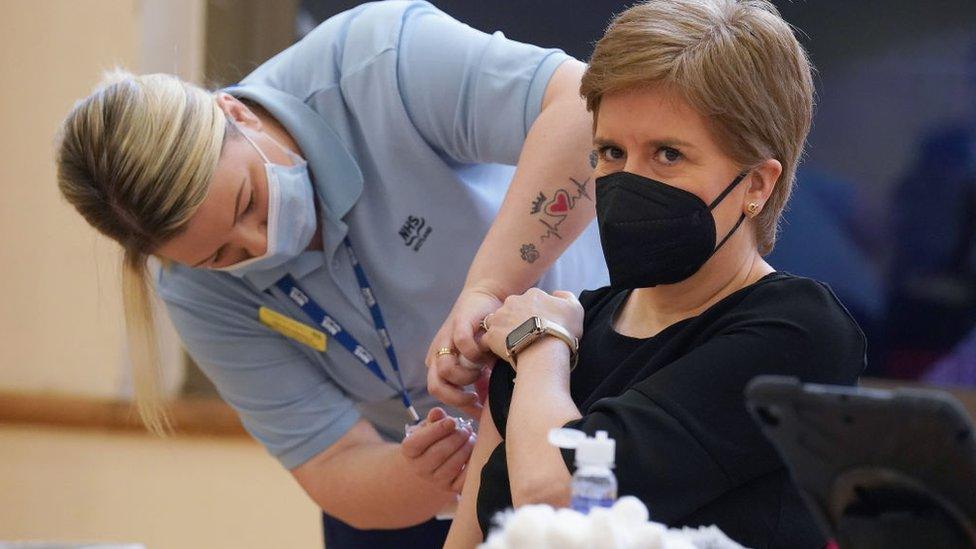UK Covid inquiry in Scotland: Five things we learned this week
- Published
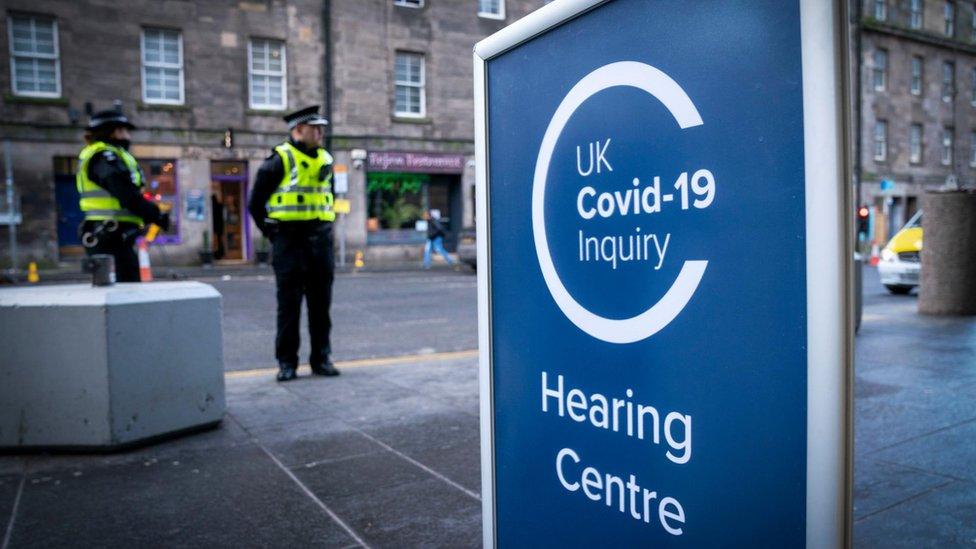
The UK Covid inquiry is sitting in Edinburgh for three weeks, where the hearings are focusing on pandemic decision-making in Scotland. Here are five things we learned from the evidence this week.
1. Was there a 'zero Covid' strategy?
During 12 days of hearings, statisticians, advisors and politicians from both the UK and Scottish governments will be questioned on what drove the decisions that were made during the pandemic.
It will examine whether Scotland's voice was heard, given the nation's characteristics and different demographics.
There are many questions to which the inquiry is seeking answers. One is whether the Scottish government was operating a zero Covid strategy - which aimed to fully eliminate the disease - by late summer 2020. And if not, whether it should have been?
There are also questions about the mass gathering at a Nike conference, which took place at the end of February 2020. Were the dangers surrounding the event known about at the time, and what steps were taken to control the risk and inform the public of the dangers associated with it?
Lead counsel Jamie Dawson KC said the inquiry would also look at the extent to which the approach to the management of the pandemic was influenced by the Scottish government's key objective of achieving independence for Scotland. Did constitutional differences play a role in the decisions that were made?
2. Should Scotland have gone into lockdown sooner?
The inquiry heard that the Scottish government could have legislated to impose a lockdown earlier in March 2020, but decided instead to follow a four-nations approach.
Geoffrey Mitchell KC, who is counsel for the Scottish government at the inquiry, said that with the benefit of hindsight ministers would have liked to lock down earlier.
However, there had been barriers to that decision - such as the need for the UK government to provide financial support through things like the furlough scheme.
3. Mistakes 'repeated' in second wave
Paul Cairney, a professor of policy and public policy at the University of Stirling, was questioned about an extensive report he wrote for the inquiry looking into political decision-making during the pandemic.
Prof Cairney said ministers repeated mistakes as they dealt with a second wave of infection.
And he said that while the Scottish government claimed it had learned from mistakes made early on in the pandemic, this was rhetoric which did not match reality.
He said there were the same delays in responding to the second lockdown as to the first.
Prof Cairney also said he had seen no evidence to suggest that the Scottish government had learned lessons on how to deal with any future pandemic.
4. 'Disaster waiting to happen' in care homes
The chief executive of Care Scotland, Dr Donald Macaskill, said some care home residents had died unnecessarily due to the confusion in the early days of the pandemic.
The inquiry heard evidence that most people moved from hospitals to care homes in the early weeks were not tested for Covid.
One care home provider said that this, combined with a lack of protective clothing for staff, meant it was a disaster waiting to happen.
Dr Macaskill also criticised the early guidance on social distancing, saying: "The idea that when you are supporting somebody with latter stage dementia that you discourage contact, particularly touch, is really far-fetched."
He said restrictions, including a ban on visitors, had a profound and devastating impact on care home residents and their families.
5. No minutes of Gold Command meetings
The Scottish government said it had submitted more than 19,000 documents to the inquiry, and almost 28,000 WhatsApp messages.
Jamie Dawson KC revealed on Friday that former First Minister Nicola Sturgeon appeared not to have retained any WhatsApp messages. These had been deleted during a routine tidying up of inboxes or changing of phones.
It also emerged that no minutes were kept of what became known colloquially as Gold Command meetings between Ms Sturgeon and senior policy advisors. These tended to happen on the days immediately prior to the Scottish Cabinet's weekly meetings.
The Scottish Covid Bereaved group said that in previous hearings some of the best, most unguarded evidence had come from informal communications such as WhatsApp and texts.
It said it would have been obvious from spring 2021 onwards that an inquiry would be held and that evidence of these discussion would be of vital importance.
Related topics
- Published19 January 2024
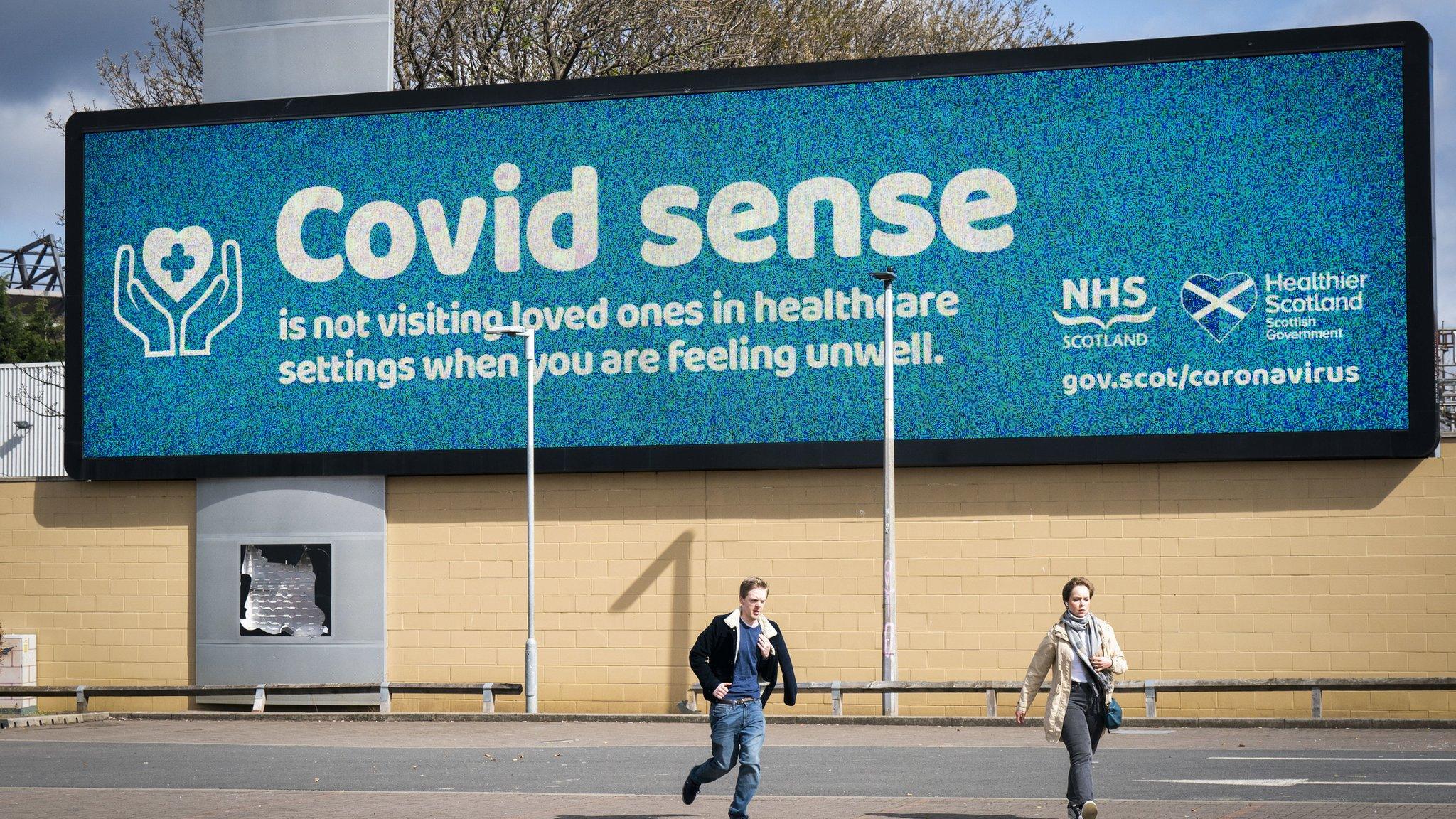
- Published18 January 2024
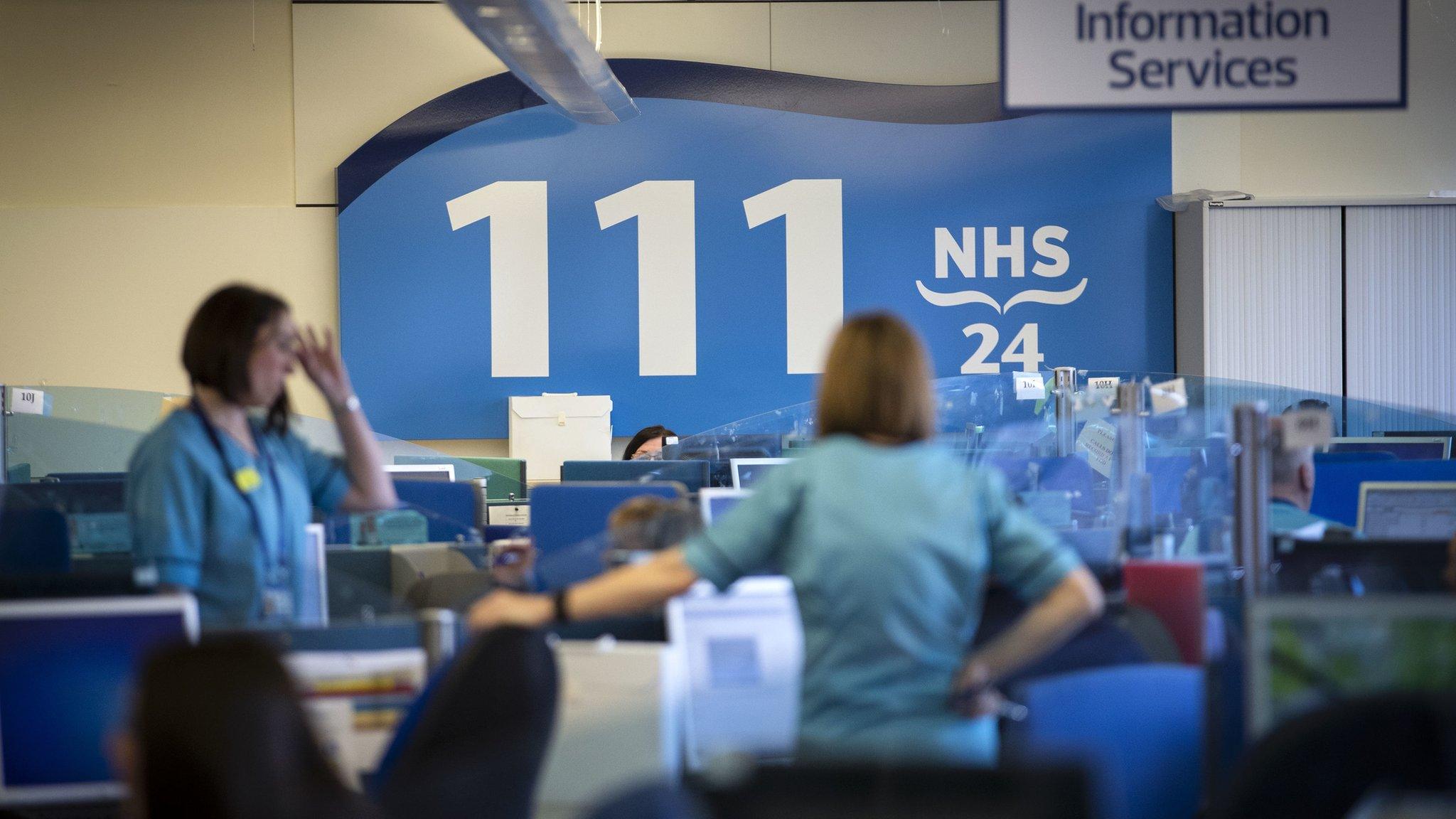
- Published17 January 2024
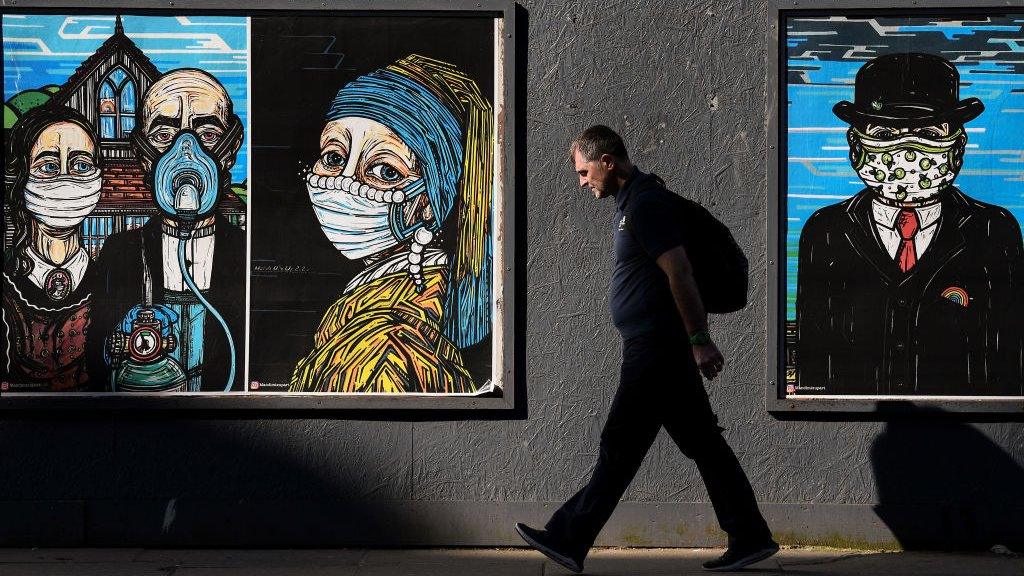
- Published16 January 2024
